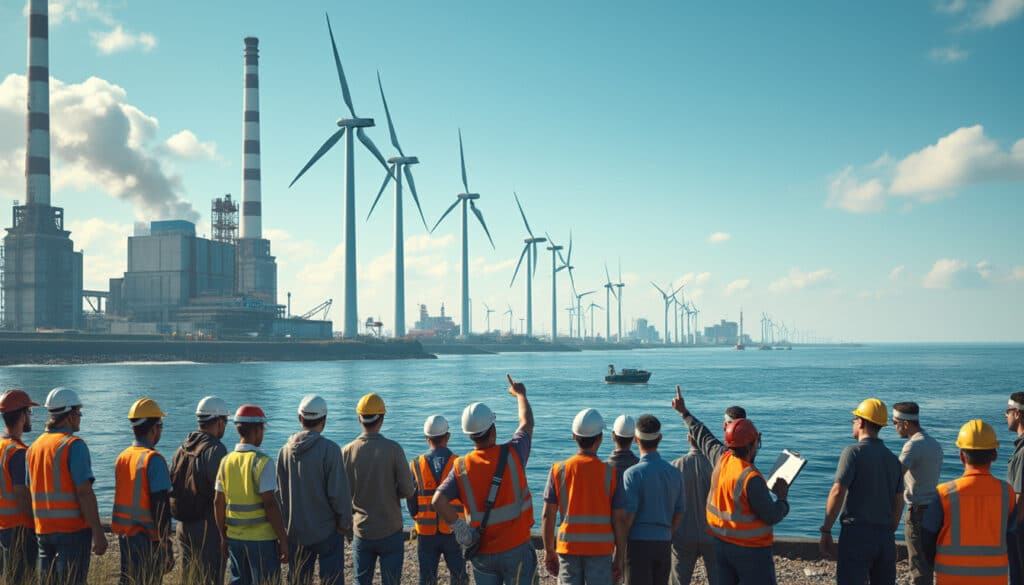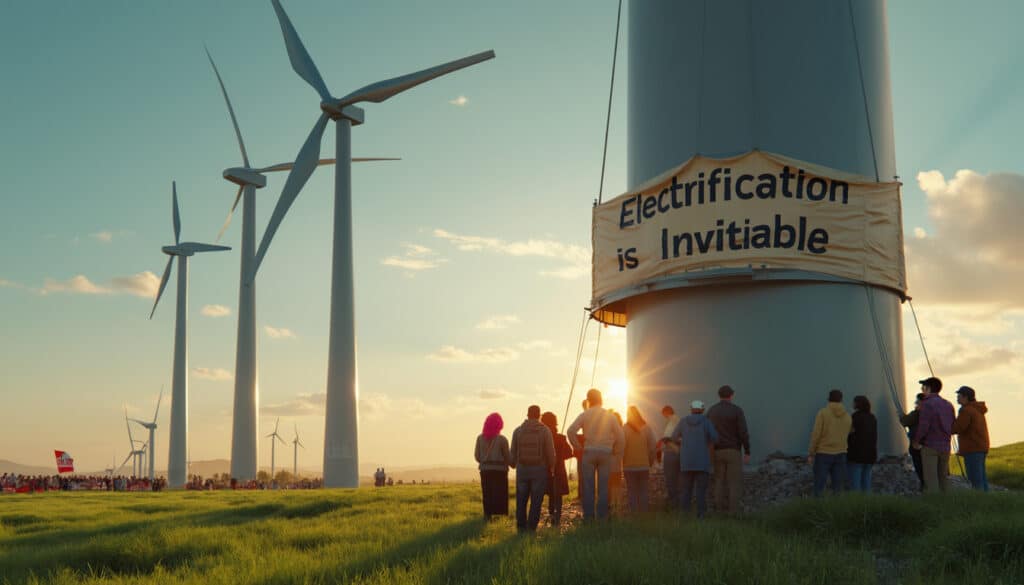The expansion of offshore wind in the UK opens up considerable prospects for the local economy, but also significant challenges for the British steel industry. As the country shifts toward more sustainable energy production, steel stakeholders urgently demand that the government prioritize local purchasing for the materials used in offshore wind projects. This demand comes at a time when wind capacity is rapidly increasing, yet the contribution of British steel accounts for only a fraction of total production. With a major rise in demand for steel anticipated for these projects, the stakes are thus high.
The British steel industry is calling on the government to favor the purchase of local products as part of the significant development of offshore wind in the UK. While wind power now contributes 29% of the electricity produced, only a tiny fraction of the steel used is made locally. With the projected demand for offshore wind steel expected to far exceed that of the combined defense and infrastructure sectors by 2050, the industry emphasizes the importance of supporting the local supply chain to maximize economic returns and make investments more attractive.

A call for increased support for the local steel industry
With the rapid expansion of offshore wind, the British steel industry sees a unique opportunity to strengthen the local supply chain for steel. Currently, only 2% of the steel used in offshore wind projects in the UK comes from local sources. This statistic highlights an urgent need to develop national steelmaking capabilities to meet this growing demand. UK Steel urges the government to favor British products to better support the local economy and reduce dependence on imports.
The challenges of steelmaking capacity in the UK
A large portion of the upcoming demand for offshore wind will concern high-quality steel, a resource that is currently lacking in the British market. To meet this need, it is crucial that the government and private enterprises invest in increasing local production capacities. The sector hopes that new government strategies will include funding for this development, thus ensuring a solid foundation for British steel supply. Without this, projects will continue to rely predominantly on imports, thereby limiting the positive economic impact of offshore wind on British territory.
The benefits of local purchasing in the wind sector
Opting for local purchasing presents several advantages. Not only does it keep economic benefits within the country, but it also reduces the carbon footprint associated with the transport of imported materials. Companies like SeAH and Smulders have already begun efforts to assemble and produce locally, although their success still depends on steel sourcing. UK Steel asserts that the government’s commitment to buying British could revitalize the steel sector while supporting environmental goals. By investing in a strengthened steel industry, the UK could not only meet its growing offshore wind energy needs but also become a leader in the production of sustainably resilient renewable energy.
Articles similaires
Thank you!
We will contact you soon.














